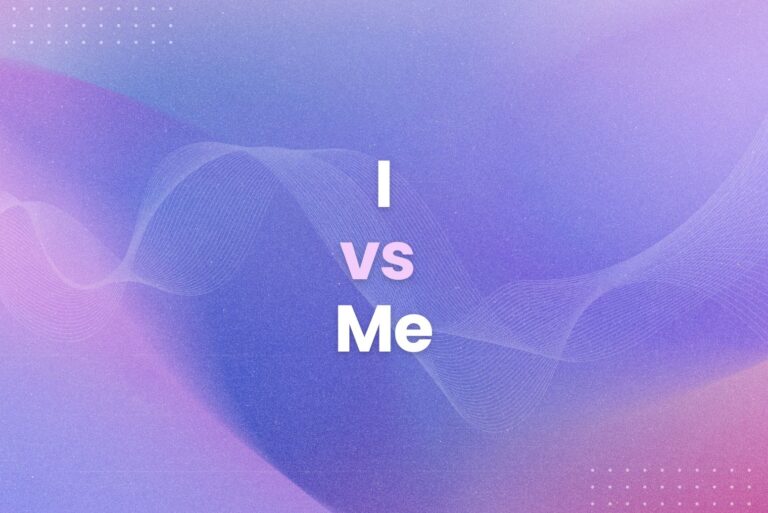Verbage vs Verbiage: Why Only One of These Words Is Correct
Using the wrong word can derail even the best writing. Do you feel confused when you use verbage vs. verbiage? Words like “verbage” sneak into conversations and documents, pretending to be correct. But here’s the catch—one of these words isn’t real. Yes, really.
This article sets the record straight. What we’ll cover:
- What does verbage vs verbiage mean?
- Why “verbage” isn’t actually a word
- The correct way to use “verbiage.”
- Common mistakes and how to avoid them
By the time you finish reading, you’ll never confuse these words again.
What Do “Verbage” and “Verbiage” Mean?
Language evolves, but not every word that pops up earns a spot in the dictionary. That’s exactly what separates verbage vs verbiage.
- Verbiage, pronounced vur-bee-ij, is the real deal. It refers to an overuse of words or overly complicated language. For example, a legal document filled with unnecessary jargon could be described as “dense with verbiage.” It’s not always negative, though—it can also mean simply “wording” or “phrasing” in a neutral way.
- Verbage, on the other hand, is a common misspelling or mispronunciation. It’s often used when someone intends to say “verbiage” but gets it slightly wrong. Despite its frequent use, it’s not a recognized word in English.
So why does “verbage” exist? Mistakes like this usually happen because of how words sound in casual speech. Plus, English loves its exceptions, which can confuse even seasoned writers.
Knowing the difference matters. Especially in professional or academic settings. Using the correct term shows you’ve got a solid grasp of language, which helps build trust with your audience.
Why “Verbage” Isn’t Actually a Word
If you’ve come across “verbage,” you might think it’s legitimate. But it’s not. Here’s why.
The word likely emerged from a simple mistake—mixing up the pronunciation of “verbiage.” Since “verbiage” rolls off the tongue in a way that sounds like “verbage.” People began using it without realizing it wasn’t real. Over time, repeated errors gave it a false sense of legitimacy.
Here’s the catch: “verbage” doesn’t appear in any reputable dictionary. It’s considered a nonstandard word. This means, it’s recognized as an error rather than an accepted part of the language.
Why should this matter? Using “verbage” instead of “verbiage” can hurt your credibility. Especially in professional or academic writing. Readers who know the difference may see it as sloppy or uninformed.
To avoid this slip-up:
- Double-check unfamiliar words before using them.
- Leverage tools to instantly confirm spelling, definitions, and proper usage.
- Practice using the correct term in sentences so it feels natural.
Small errors can have a big impact. Knowing the difference keeps your writing polished and professional.
The Correct Way to Use “Verbiage”
“Verbiage” is all about words—but how you use it depends on the context. While the term often carries a negative connotation. It can also have neutral or descriptive uses. Let’s break it down.
When “Verbiage” Is Negative
In many cases, “verbiage” describes writing or speech that is unnecessarily long or complicated. Think of overly dense legal jargon or business emails stuffed with fluff. Here’s an example:
- “The report was full of unnecessary verbiage, making it difficult to understand.”
In this sense, “verbiage” criticizes the wordiness of the text. If something could be said more clearly or succinctly, calling it “verbiage” highlights the issue.
When “Verbiage” Is Neutral
Sometimes, “verbiage” simply refers to the words or phrasing used in communication. It’s a straightforward way to describe how something is worded, without implying anything negative. For example:
- “The marketing team debated the verbiage of the new ad campaign.”
Here, it’s about the choice of words, not the length or complexity.
Pro Tips for Using “Verbiage”
Make sure the tone matches your intent. If you’re critiquing wordiness, the negative use works well. But if you’re describing phrasing or wording, stick to the neutral sense.
Need help crafting clear and precise “verbiage”? Tools like Arvin can suggest edits and streamline your phrasing. This ensures your word choice fits the context. With Arvin’s grammar feature, you’ll never stumble over wording again.
Common Mistakes and How to Avoid Them
Mistakes with verbage vs verbiage often include pronunciation, misunderstanding, or careless writing. Here are the most common ones—and how to sidestep them.
Using “Verbage” Instead of “Verbiage”
This is the biggest offender. Many people assume “verbage” is correct because it sounds right in casual speech.
Avoid it:
- Remember, “verbiage” is the only correct word.
- Use spelling tools to catch these errors instantly.
Overusing “Verbiage” in Writing
While it’s a legitimate word, “verbiage” can feel clunky or pretentious if used too often. Instead, try simpler alternatives like “wording” or “phrasing” when the meaning is neutral.
Avoid it:
- Save “verbiage” for when wordiness or complexity is the focus.
- Stick to straightforward terms for everyday use.
Misinterpreting Its Meaning
Some people think “verbiage” always implies negativity. However, as discussed earlier, it can also refer to neutral phrasing.
Avoid it:
- Consider the context. Are you critiquing wordiness or just describing language?
- If in doubt, review how it fits your sentence.
Ignoring Audience Perception
If your audience isn’t familiar with the word, using “verbiage” might confuse them. Especially in casual or general writing, clarity trumps complexity.
Avoid it:
- Use simpler terms when writing for a broad audience.
- If precision is key, provide context or examples to clarify.
Tools to Help
Grammar tools like Arvin can flag misused words and suggest better alternatives. This ensures your writing stays clear and polished. Pairing a good tool with careful proofreading can make a world of difference.
Never Mix Up “Verbage” and “Verbiage” Again
Understanding the difference between “verbage” and “verbiage” is small. But a powerful step toward sharper communication. Knowing which to use (and when) boosts your credibility and avoids unnecessary confusion.
Here’s what to remember:
- “Verbiage” is the correct word.
- “Verbage” is a common misspelling or mispronunciation.
- Use “verbiage” to critique wordiness or describe phrasing.
- Tools like Arvin can help catch these errors before they happen.
With these tips, you’ll never second-guess your word choice again.
Polish Your Writing Effortlessly with Arvin
Struggling with tricky words like “verbiage” is more common than you think. That’s where Arvin comes in. Its grammar feature doesn’t just correct mistakes. It helps you craft precise, professional writing every time. From spotting errors to refining your phrasing. Arvin ensures your language always hits the mark.
FAQs
What is an example of “verbage”?
“Verbage” is not a real word, so it shouldn’t appear in any proper writing. However, a common misuse might look like this:
- “The proposal was filled with too much verbage.”
In this case, the writer likely meant to use “verbiage” to describe unnecessary or excessive wording.
Which is correct: “verbage” or “verbiage”?
The correct word is “verbiage”. It refers to the wording or phrasing used in writing or speech, often with a focus on wordiness or complexity. “Verbage” is a misspelling and is not recognized as a legitimate term in English.
What does “proper verbage” mean?
This phrase is incorrect. If you mean to describe the appropriate choice of words. The correct term is “proper verbiage.” For example:
- “The instructions used proper verbiage to ensure clarity.”
What is “verbiage” slang for?
In some contexts, “verbiage” is slang for overly complicated or excessive language. For instance, someone might say, “That speech had way too much verbiage,” to critique how unnecessarily wordy it was. In casual use, it can also simply mean “phrasing” or “word choice.”





